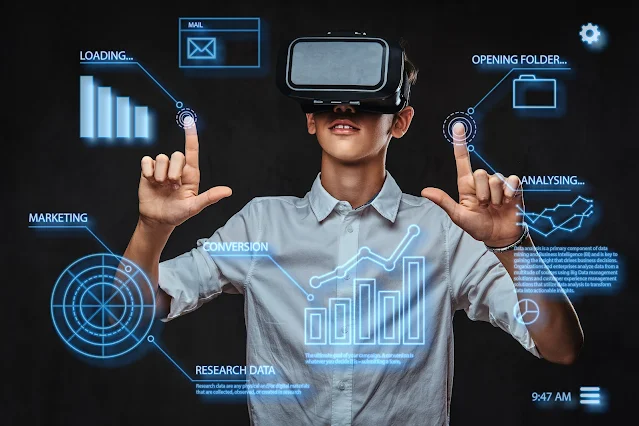As we advance deeper into the 21st century, technology continues to evolve at an unprecedented pace. This rapid development not only reshapes industries but also transforms the way we live, work, and interact with each other. In this article, we’ll explore ten emerging technologies that are set to redefine our future.
1. Artificial Intelligence (AI)
Artificial Intelligence has already made significant strides, and its potential is vast. AI systems can analyze data at incredible speeds, helping businesses make informed decisions. Machine learning, a subset of AI, enables systems to learn from data patterns, improving accuracy over time. Applications range from customer service chatbots to predictive analytics in healthcare, where AI can assist in diagnosing diseases earlier than traditional methods.
Future Impact:
The integration of AI into various sectors, including finance, healthcare, and transportation, will streamline processes, enhance productivity, and create new job opportunities focused on AI management and ethics.
2. Blockchain Technology
Blockchain technology, originally the backbone of cryptocurrencies, is gaining traction in diverse sectors. Its decentralized and secure nature ensures transparency and trust, making it ideal for supply chain management, voting systems, and identity verification.
Future Impact:
As organizations adopt blockchain for various applications, we can expect enhanced security and reduced fraud, leading to greater confidence in digital transactions.
3. Quantum Computing
Quantum computing harnesses the principles of quantum mechanics to process information at speeds unattainable by classical computers. While still in its infancy, this technology promises to solve complex problems, such as optimizing logistics and drug discovery.
Future Impact:
Quantum computing could revolutionize industries by significantly shortening the time required for research and development, enabling breakthroughs that were previously thought impossible.
4. Internet of Things (IoT)
The Internet of Things refers to the network of interconnected devices that communicate and exchange data. From smart home appliances to wearable health monitors, IoT devices enhance convenience and efficiency in our daily lives.
Future Impact:
As IoT continues to expand, we’ll see smarter cities, improved energy management, and personalized healthcare solutions, ultimately creating a more connected and efficient world.
5. Augmented Reality (AR) and Virtual Reality (VR)
AR and VR technologies are changing the landscape of entertainment, education, and training. While VR immerses users in a completely digital environment, AR overlays digital information onto the real world, enhancing our interaction with our surroundings.
Future Impact:
These technologies will transform industries such as gaming, real estate, and education by providing immersive experiences that improve engagement and understanding.
6. Biotechnology
Biotechnology is revolutionizing healthcare by enabling innovations in genetics, drug development, and personalized medicine. Advances in gene editing technologies, like CRISPR, allow scientists to modify DNA with unprecedented precision.
Future Impact:
With continued progress in biotechnology, we can expect advancements in disease prevention, treatment personalization, and even solutions for food security through genetically modified crops.
7. Renewable Energy Technologies
As the world shifts towards sustainability, renewable energy technologies, including solar, wind, and hydrogen fuel cells, are gaining prominence. Innovations in energy storage and grid management are making renewable sources more reliable.
Future Impact:
The widespread adoption of renewable energy will significantly reduce carbon footprints, combat climate change, and promote energy independence for nations worldwide.
8. 3D Printing
3D printing technology, also known as additive manufacturing, allows for the creation of three-dimensional objects from digital files. This technology has applications in various industries, including manufacturing, healthcare, and even construction.
Future Impact:
As 3D printing becomes more advanced and affordable, we can expect on-demand production, reduced waste, and the ability to create customized products tailored to individual needs.
9. Edge Computing
Edge computing involves processing data closer to its source rather than relying on a central data center. This approach reduces latency and bandwidth usage, making it ideal for applications that require real-time data processing, such as autonomous vehicles and industrial automation.
Future Impact:
The growth of edge computing will enable faster decision-making in critical applications, enhancing the performance of IoT devices and improving user experiences in various tech-driven environments.
10. Autonomous Systems
Autonomous systems, including self-driving cars and drones, are becoming more sophisticated with advancements in AI and sensor technology. These systems have the potential to revolutionize transportation and logistics by reducing human error and increasing efficiency.
Future Impact:
The widespread adoption of autonomous systems will transform urban mobility, enhance delivery services, and improve safety on roads, ultimately reshaping how we navigate our world.
Conclusion
The technologies outlined above are not just trends; they represent foundational shifts that will impact every aspect of our lives. As these innovations continue to evolve, they will unlock new possibilities, drive economic growth, and address some of the world’s most pressing challenges.
Staying informed about these emerging technologies is essential for individuals and businesses alike. By embracing these advancements, we can shape a future that is not only more efficient and connected but also sustainable and equitable. As we stand on the brink of this technological revolution, the potential for positive change has never been greater.
